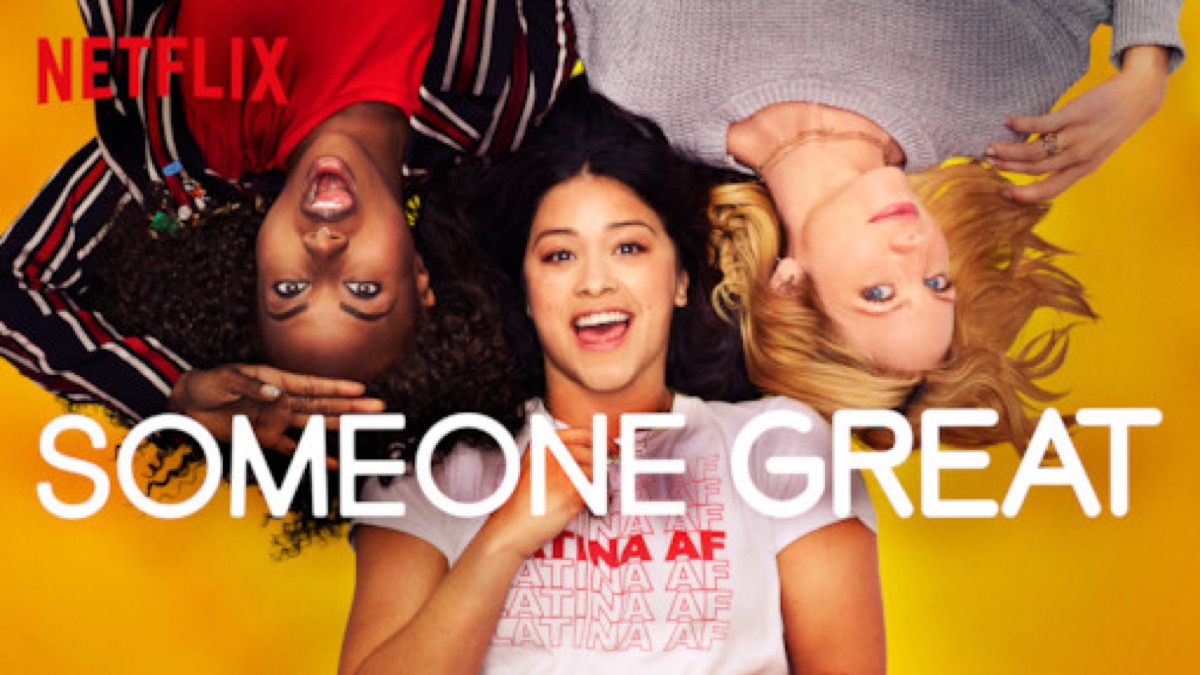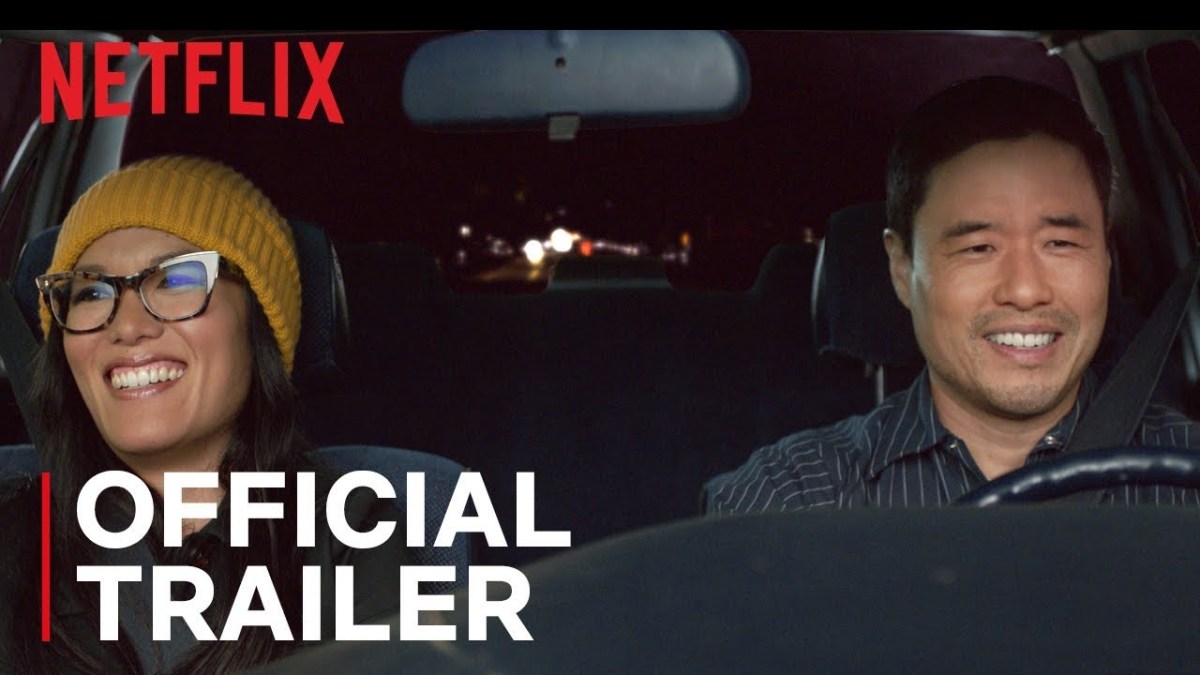There was something therapeutic about openly weeping at the end of the tremendous and overlooked Someone Great on Netflix. Yes, perhaps this writer just had a particularly tough week, and maybe, just maybe, she errs on the side of overworked, but regardless, the opening floodgates were a trap door to a catharsis I couldn’t have imagined I needed. Good cinema has this effect.
That scene in Before I Fall, when our lead spends one last, “perfect day” with her little sister before accepting her fate? Or the ending montage in About Time between father and son? How about the scene in Mama Mia: Here We Go Again when Meryl Streep’s spirit appears to duet with her daughter? A wreck, every single time.
What’s so telling of Someone Great’s, uh, greatness is how it manages to subvert expectations of the typical romantic comedy. Straight out of the gate, it makes sure we know that this romance isn’t so much about the getting together, but about the falling apart, and that finding beauty and worth in the loss of a relationship is just as indicative of your growth as accepting love.
It’s those finely woven details of self-love that bring on the tears, and it’s the relationship between the three leads that provides the laughs, because it rings true. Netflix isn’t striking out into exhilarating new territory with each new entry into its ever growing romantic comedy category, but when they find that right amount of magic, it soars, and there’s value in uplifting a genre that so often has been torn down by audiences and studios alike as being a lesser form of storytelling.
But as an emotions-on-her-sleeve type of girl, those earnest, I can say that those heartfelt stories deserve as much a place in media as any other, “highbrow” piece of cinema, because their ability to make us feel is tenfold. It’s asking us to accept love as a storyline, to see the schmaltz and embrace it, because the end result—when done with finesse—is so worthwhile.
Recent news of author Sarah Dessen optioning three of her books to Netflix, along with a new film from Saving Face director Alice Wu (and if you haven’t seen this one, run, don’t walk, to do so), promises there will be plenty more on the horizon.
Where once there was a plethora of romantic comedies in theatrical release, the film industry has since passed the torch, more or less, to television. It’s TV that may still indulge in romance in the conventional (poorly aged) sense with shows like How I Met Your Mother, while also evolving into edgier “dramedies” that toe the line between romance, comedy, and all that falls in-between with series such as Crazy Ex-Girlfriend, You’re the Worst, and Catastrophe.
There’s room for romance; studios just haven’t taken it very seriously in a long time, and when they do, the expectations are even higher. Last year’s Crazy Rich Asians had the herculean task of proving both that people want to see this type of film and also that they want to see them with an Asian-led cast (spoiler: they do.)
Similarly, 2018 also premiered the adaptation Love, Simon, a film that once again played with coming-of-age and romcom themes while simultaneously being the spokes-film for the LGBTQ+ teen audience, who were looking to see themselves represented. Other films, such as 2014’s delightful Obvious Child, had bloomed from the roots that had been planted decades before, but it was fresh, modernized but familiar in a way other, lazily billed romantic comedies hadn’t been for nearly a decade leading up to it. The genre had been forced to either play in the sidelines, tout causes (if important ones), or produce something altogether new to be taken seriously, but no more.
If you look at the mid-to-late 2000s (and some of the ’10s), you can see how things began to shift from the charm and time-resilient flicks like When Harry Met Sally or Bridget Jones’ Diary to more male-geared comedies with just a flick of romance dappled in, such as Knocked Up or The Ugly Truth. It was as if a switch had gone off in Hollywood’s mind that either they were going to repackage a working product to appease men who were too insecure in their own sexuality to sit down for a film labeled “romantic comedy” (or, more narrow-mindedly, “chick-flick”) or to put such little effort into the film that if it were to see the light of day, the damage wouldn’t be enough to tank the company.
Women weren’t and aren’t seen as reliable consumers, just like they weren’t seen as strong storytellers or visionaries that could reach past gender barriers. We can sit down and all relate to Dan Aykroyd’s Ray in Ghostbusters as he fights off otherworldly spirits, but god forbid we ask men, in return, to watch Reese Witherspoon’s Elle in Legally Blonde fight patriarchal systems and the expectations that look down on her because of who she is.
It’s why the Netflix push for romantic comedies has been such a terrific one, because when they succeed, they’re doing so with a gusto that understands audiences have been eagerly anticipating a revival of sorts. Yes, we have Crazy Rich Asians and Love, Simon, but we need more than those, both for the genre’s sake and to prove that audiences want more than one film a year that stars an Asian-American lead or focuses on a gay teen romance. These stories, the ones that Netflix has been bolstering, are the ones met with resistance by larger studios, because it’s still not believed that audiences want to see them—see themselves—despite extraordinary evidence stating otherwise.
Films such as To All the Boys I’ve Loved Before, Always Be My Maybe, Set It Up, and Someone Great aren’t so much tearing down narrative barriers as they’re offering a platform for fresh, diverse and overlooked voices to take hold of the stories they’re telling and starring in. All four were directed by women; three of the four starred women of color in stories so frequently occupied by white women. We may need to suffer the blows of the likes of Last Summer and The Kissing Booth to find the gems, but when they’re unearthed, they’re near universally heralded because there’s something for everyone to latch onto.
As is the case with superhero films, action flicks, and great—theater mandated—comedies, romantic comedies arrive on the scene with a built-in audience seeking out that level of escapism. What Netflix has been doing is wonderful and worthy of praise because it’s presenting those escapes with a greater level of diversity and a keen eye and ear for modern, female stories, unlike plenty of their contemporary studio competitors.
There are still flaws to be ironed out, and if they’re going to engage in this level of diverse storytelling, they shouldn’t go the way of so many other YA adaptations by handing the reins to a male director for the sequel after the triumph of the first (hello, To All the Boys I’ve Loved Before 2), and instead demonstrate faith in the female voice that led them to that success.
Regardless, these voices, their stories, and the template they exist in are being celebrated and gobbled up the moment they hit the streaming service. If they were smart, studios would take note and, for once, put some weight behind the enthusiasm of young women and chase these stories and specific points of view.
(featured image: Netflix)
Allyson Johnson is a twentysomething writer and a lover of film and all things pop culture. She’s a film and television enthusiast and critic over at TheYoungFolks.com who spends too much of her free time on Netflix. Her idols are Jo March, Illana Glazer, and Amy Poehler. Check her out at her twitter @AllysonAJ or at The Young Folks.
Want more stories like this? Become a subscriber and support the site!
—The Mary Sue has a strict comment policy that forbids, but is not limited to, personal insults toward anyone, hate speech, and trolling.—











Published: Jun 24, 2019 04:33 pm